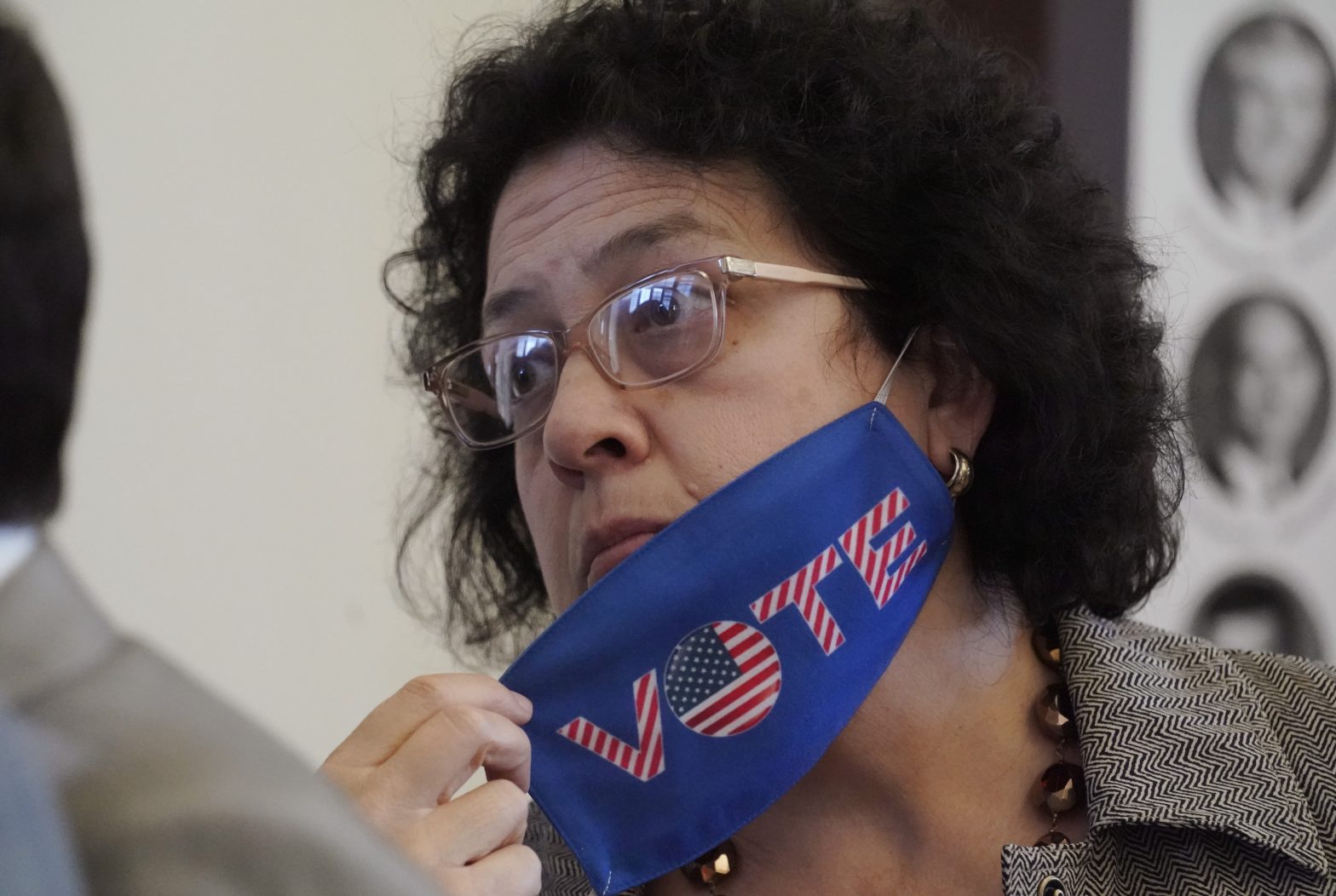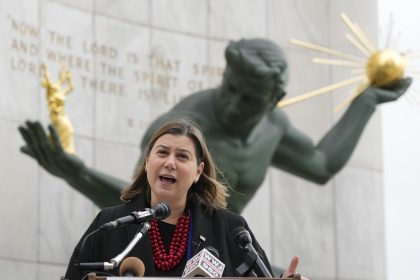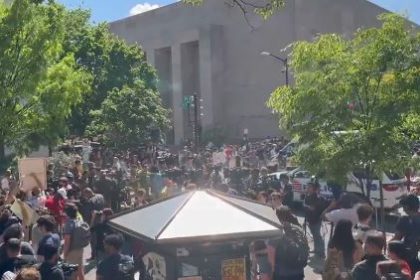Texas Passes Contentious Voting Bill After All Night Debate

AUSTIN, Texas — Following hours of debate over amendments proposed by Democratic lawmakers, the Texas House of Representatives approved new restrictions to state election rules early Friday morning.
After Democrats proposed more than 130 amendments to the legislation, the lawmakers eventually agreed to revise the bill by passing a multitude of amendments in succession without objection from either party. Finally, at around 3 a.m. CST, the bill passed along party lines by a margin of 81 – 64.
The bill is a significantly different version than the one passed by the Senate in April, so it will likely head to a conference committee for finalization. Consequently, changes included in the final engrossed version of the bill could be crafted behind closed doors.
“Election integrity is the number one legislative priority of the Republican Party of Texas,” Allen West, chair of the Republican Party of Texas, said in testimony before the House Elections Committee. “It should, without a doubt, be the number one legislative priority for the entire country. It is imperative that our state, Texas, enacts the strongest guidelines and laws for ensuring that we execute honest and fair elections in the Lone Star State.”
West’s testimony continued, “The lessons of the November 2020 election cycle must be learned and corrected. We can ill afford to allow a repeat of unconstitutional actions and violations of election law to invade our democratic system of conducting elections.”
Prior to its passage, the legislation had already gained the attention of progressive groups and voting rights advocates who characterized it as a voter suppression bill. A nonpartisan coalition of businesses, advocacy groups and local organizations circulated a letter signed in opposition to the bill last month. American Airlines, Microsoft, and Patagonia were just a few of the letter’s signatories.
Republicans contended in their defense of the legislation that the bill is designed to tackle and prevent instances of voter fraud within the state. However, instances of voter fraud convictions in Texas have decreased between elections. Attorney General Ken Paxton’s office closed 16 voter fraud prosecutions in 2020, only half as many prosecutions as there were in 2018, according to the Houston Chronicle.
“Politicians at all levels of government have repeatedly, and falsely, claimed the 2016, 2018, and 2020 elections were marred by large numbers of people voting illegally,” experts from the Brennan Center for Justice wrote. “However, extensive research reveals that fraud is very rare, voter impersonation is virtually nonexistent, and many instances of alleged fraud are, in fact, mistakes by voters or administrators. The same is true for mail ballots, which are secure and essential to holding a safe election amid the coronavirus pandemic.”
Other opponents of the bill include advocates for disabled people and local election officials in some of the state’s largest counties. While the version of the bill just passed by the Texas House gutted various restrictive provisions opposed by those groups, it is still unknown what the finalized bill will contain once it reaches Abbott’s desk for signing.
A provision that would have mandated individuals who are assisting voters to disclose the reason why the voter required assistance was excluded from the legislation passed on Friday. The members also amended provisions that enhanced protections for partisan poll watchers and provisions that stiffened penalties for voting-related offenses.
Further, Democrats successfully added language to the bill that would require judges to inform individuals if a conviction would prohibit them from casting a ballot and mandate that those individuals know why they are ineligible to vote. This was included in response to a Tarrant County woman’s five-year sentencing in March for casting a provisional ballot in the 2016 election while she was on supervised release for a federal conviction.
“State Republicans are relentless in their attempts to silence voters in Texas, especially voters of color who came out in record numbers last year,” Gilberto Hinojosa, chair of the Texas Democratic Party, said in a written statement. “But this fight is far from over. This racist bill still has a ways to go before becoming law. And Democrats will continue to work together to quickly pass federal legislation that ensures the rights of the people to vote are protected in all 50 states.”






















